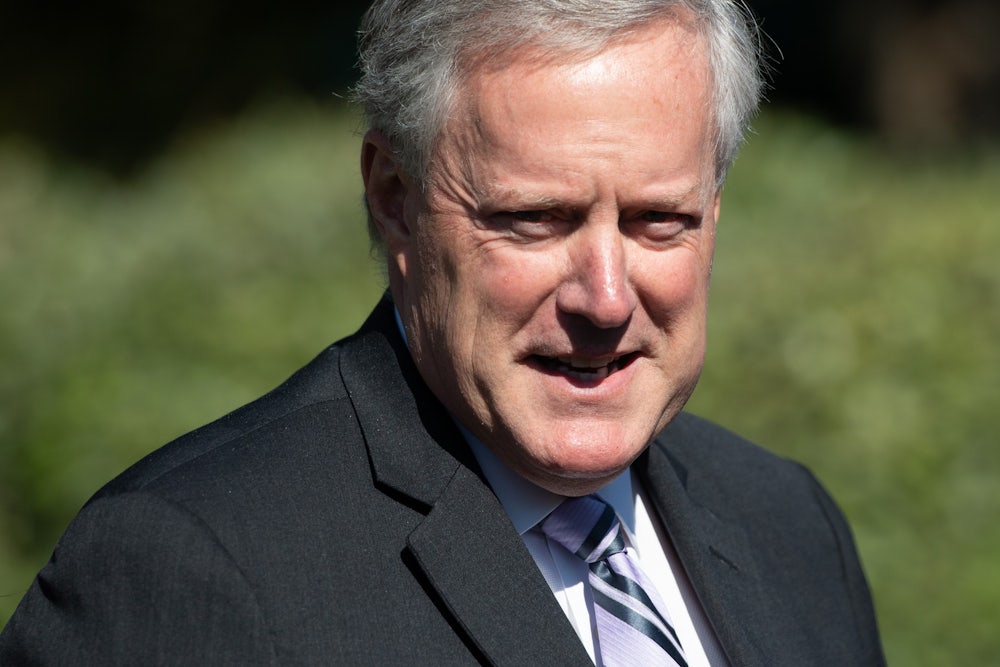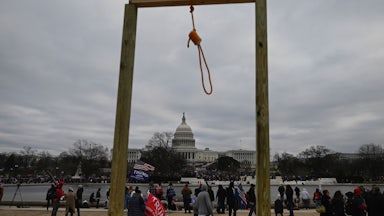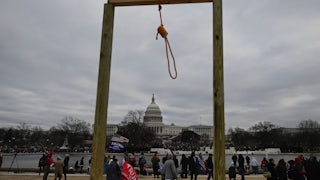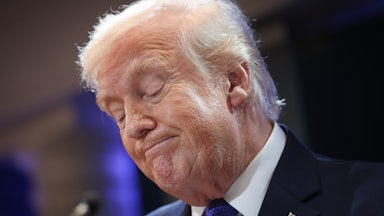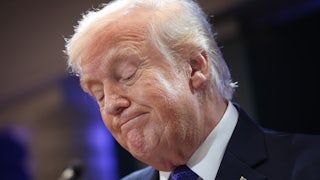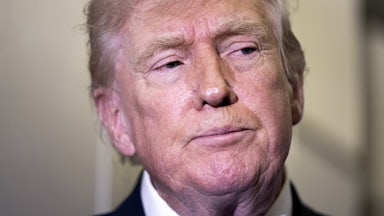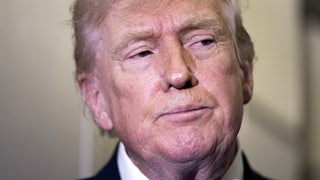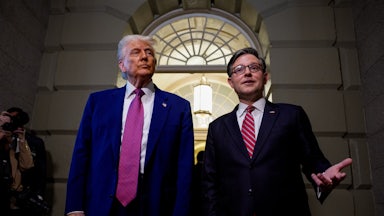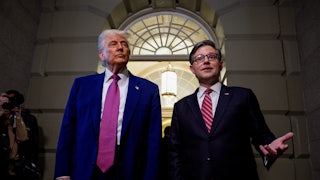Every step of the way, Republicans under scrutiny by the Select Committee to Investigate the January 6th Attack on the Capitol have worked to grind the panel’s work to a halt. They’ve ignored subpoena threats. They’ve tried to invoke executive privilege to get out of cooperating with the committee. And as we creep toward the new year, the time the committee has to issue an impactful report—something investigative committees don’t always manage to do—is starting to become a factor.
All of which has some people wondering what the committee will be able to conclude if the key witnesses never testify—and if enough voters will care by the time the conclusive report is published.
“I don’t think we can say what the impact will be until they finish. But most committees/commissions have little impact. Maybe this will prove to be the exception,” University of Virginia School of Law Professor Saikrishna Prakash, who specializes in constitutional law and executive powers, said in an email.
On the plus side, the committee, still neck-deep in investigations mode, has received information from over 275 witnesses, reviewed more than 30,000 documents, and followed up on over 250 tips sent to its tip line, according to a committee aide.
On Wednesday, Committee Chairman Bennie Thompson ticked off new information provided by Meadows in a letter responding to Meadows’s attorney. Meadows has provided, among other documents, “a 38-page PowerPoint briefing titled ‘Election Fraud, Foreign Interference & Options for 6 JAN’ that was provided ‘on the hill’; and, among others, a January 5, 2021, email about having the National Guard on standby.”
He also provided text messages including “a November 6, 2020, text exchange with a Member of Congress apparently about appointing alternate electors in certain states as part of a plan that the member acknowledged would be ‘highly controversial’ and to which Mr. Meadows apparently said, ‘I love it,’ according to the letter.”
In addition, Marc Short, former Vice President Mike Pence’s chief of staff when Pence was in office, is also cooperating with the committee. Bernie Kerik, who was a member of Trump’s postelection legal representation, has also said he will hand over documents to the committee (with a few caveats). And more information is coming out about the response to the mob attack. The trial for Steve Bannon on contempt of Congress charges for refusing to cooperate with the committee is set for July 18.
Members of the committee have also begun moving to overhaul an obscure election law that Trump and his allies tried to exploit as they sought to overturn the election. Trump’s allies used a distorted interpretation of the law, the Election Count Act of 1887, to try and convince Pence that he could toss out the election results during the joint session of Congress on January 6. Pence ultimately decided not to follow through with the pro-Trump interpretation, but there is still room under the statute for the House, which may well be in Republican hands in January 2025, to make plenty of mischief. So the committee is planning to issue recommendations to rewrite the law to prevent such action.
And yet there’s still plenty of resistance. On Wednesday afternoon, news broke that Meadows, despite his cooperation with respect to documents, is suing the committee as it prepares to hold him in contempt for declining to fully participate with the committee. Other high-profile former Trump officials and advisers, like Roger Stone, have invoked their Fifth Amendment rights to avoid having to work with the committee.
And as 2021 draws to a close, the committee is now officially starting to race the clock. There’s not a huge amount of time left before next November’s midterms to release a final report. And when it does, what will the response of the larger public be?
Veterans of past congressional investigations say that for all the attention that’s gone to the best-known Trump allies and Trump himself refusing to cooperate with the probe, there are hundreds more lesser-known individuals who seem to be cooperating.
“For every Meadows who refuses to cooperate or Bannon who refuses to cooperate or Stone who takes the Fifth, there are dozens and dozens of witnesses,” said Norm Eisen, the former co-counsel of the House Judiciary Committee during the first Trump impeachment trial. Eisen stressed the signs suggesting that the committee seems to be on the right track to producing a conclusive report that would have a “powerful impact.” He added: “We know the Meadows documents reportedly contain information such as the effort to put together an alternative slate of electors, after it was clear that Joe Biden had legitimately won the election. There are laws against election fraud in this country. And that brings us to the outcome. Because in addition to whatever the committee may find, it has the power to work with state and federal prosecutors and make referrals to state and federal prosecutors.”
I asked him, though, if the report could end up being inconclusive in some major way —like the Mueller report, even though experts have stressed to me that this panel is not like that investigation. Eisen said, “No one knows the answer to that. The committee may not know the answer to that, either, because they haven’t finished their evidence collection.”
Linda Gustitus, a former chief of staff to the late Senator Carl Levin, the longtime member of the Senate’s Permanent Subcommittee on Investigations, said she expected the committee to produce as vast a report as it can. She pointed to the fact that Thompson and Congresswoman Liz Cheney are chairing the committee.
“I mean, Liz Cheney is as tough as they come and as strong as they come and believes deeply in what she’s doing,” Gustitus said. “So I think the likely outcome is they’re going to give it their best shot, and they’re not going to hold back, because people on that committee believe deeply in what they’re doing. And the sense I get from hearing them speak is that they’re going to do everything they can because they see this as actually a real threat.”
But Gustitus wasn’t sure that even after an expansive and damning report, the public would be moved. “Now whether the 89 percent of Republicans who believe Trump walks on water would accept the report, that’s a completely different thing,” she said. “But what about Independents out there who aren’t completely sold lock, stock, and barrel on Trump? Will they be affected about that kind of a report coming [from a committee] with that kind of a mix of leadership? I think they will be.”
Eisen stressed that the committee needs to finish its work before the midterms. “The critical thing is that the truth be put before the American prior to the midterms,” he said. “Even the Bannon trial is well before the midterm elections. I do think that there’s not all the time in the world, but there is some time to let the committee to do its work.”
The rule of law isn’t supposed to work under a timetable, but that’s just what’s happening here, and Trump’s allies know it. What is supposed to happen is a special committee like the panel investigating the Capitol riot should have a wide berth to get to the bottom of what happened. It’s supposed to be bipartisan, supported by both parties (which it isn’t, with a few Republican exceptions). And it’s supposed to be able to compel relevant parties to testify under the threat of severe penalties.
The actual situation is different. The committee has an effective time limit (unless Democrats somehow retain control of the House and keep the committee going) and must face the fact that Trump’s aides are figuring ways to delay having to cooperate until they don’t have to at all. In that scenario, they will be able to try and undermine another election, and the outcome may be different than in 2020.
